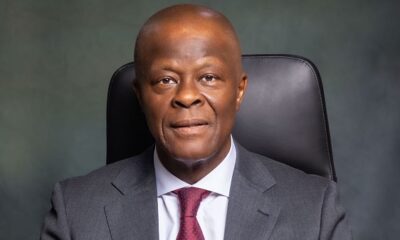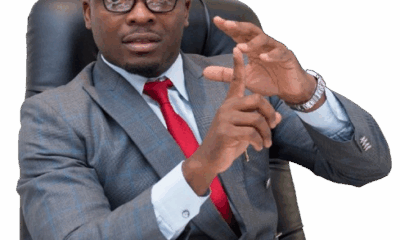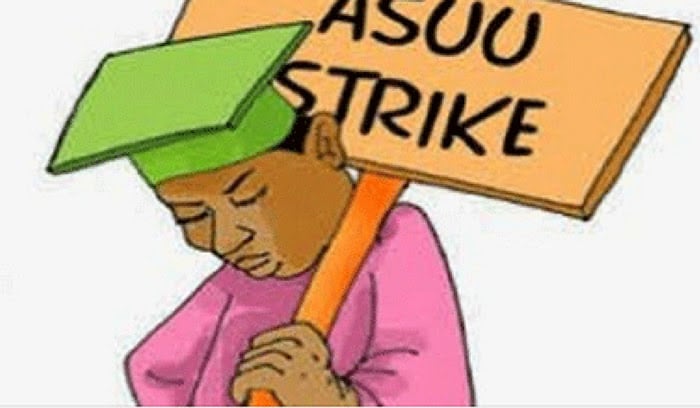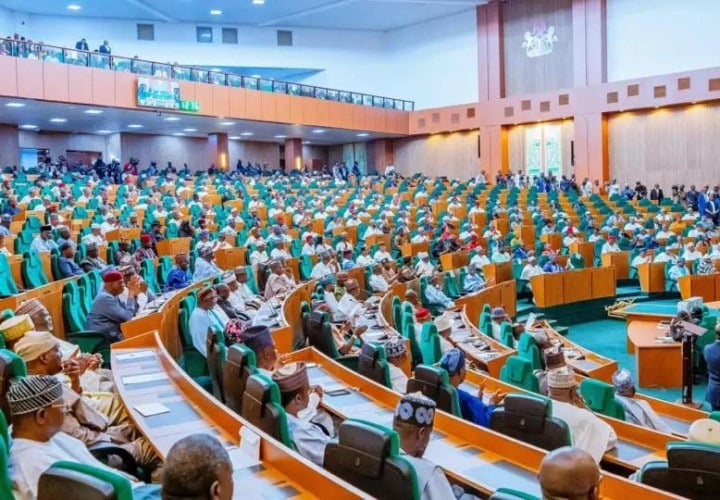The House of Representatives has resolved to intervene in the ongoing dispute between members of the Petroleum and Natural Gas Senior Staff Association of Nigeria (PENGASSAN) and the Dangote Refinery, a face-off that recently disrupted petroleum product distribution nationwide.
The decision followed the consideration and adoption of a motion of urgent public importance co-sponsored by Alhassan Doguwa (Kano) and Abdussamad Dasuki (Sokoto) during Tuesday’s plenary session.
Titled “We Need to Protect Private Investment from Adversarial Unionism,” the motion drew attention to the significance of the $20 billion Dangote Refinery, described as the largest private petroleum refinery in Africa.
The lawmakers expressed concern that the industrial action, which began on September 29, 2025, had halted operations at the refinery and caused a nationwide disruption in petroleum supply. Nigeria reportedly lost about 200,000 barrels of crude oil per day over three days, deepening scarcity and forcing long queues at filling stations across several states.
Leading debate on the motion, Doguwa stressed the need to protect strategic private investments such as the Dangote Refinery, which, he said, holds enormous potential for energy security, job creation, foreign-exchange savings, and reduced dependence on fuel imports.
“The House is aware that the Dangote Refinery is a strategic private investment of immense national importance, with the potential to guarantee energy security, reduce import dependency, generate employment, and conserve foreign exchange,” Doguwa said.
He noted that the refinery operates within a Free Trade Zone and is therefore subject to the legal framework of the Nigeria Export Processing Zones Authority (NEPZA).
“Section 18(5) of the NEPZA Act clearly states that employment in the free zone shall be governed by rules and regulations made by the Authority and not subject to any other enactments relating to employment matters,” he added.
The House, he continued, is “concerned that labour actions disregarding the legal protections conferred on Free Zones under the NEPZA Act not only breach the law but create a hostile investment climate capable of deterring future local and foreign investors.”
The lawmakers warned that if key private ventures continued to face “unlawful disruptions by adversarial unionism,” the country risked losing both strategic assets and investor confidence critical to economic growth.
During deliberation, Ahmad Jaha (Chibok/Damboa/Gwoza) urged caution, describing the call for an immediate probe as “ill-timed.”
Following debate, the House adopted the motion and mandated its leadership to broker peace between the parties in the interest of national stability.
It also urged the Ministries of Labour and Employment, Industry, Trade and Investment, and Justice to “jointly develop and implement a national framework or set of policies to safeguard private investments of strategic national importance from adversarial and unlawful union actions.”
Additionally, the Ministry of Justice and NEPZA were directed to ensure “full enforcement and compliance with Section 18(5) of the NEPZA Act” across all relevant Free Zone operations.
The lawmakers said the intervention was necessary to balance workers’ rights with the protection of vital private enterprises that underpin Nigeria’s energy and industrial sectors.

 BIG STORY1 day ago
BIG STORY1 day ago
 BIG STORY1 day ago
BIG STORY1 day ago
 BIG STORY2 days ago
BIG STORY2 days ago
 BIG STORY19 hours ago
BIG STORY19 hours ago
 BIG STORY21 hours ago
BIG STORY21 hours ago
 BIG STORY2 days ago
BIG STORY2 days ago
 BIG STORY3 days ago
BIG STORY3 days ago
 BIG STORY1 day ago
BIG STORY1 day ago























